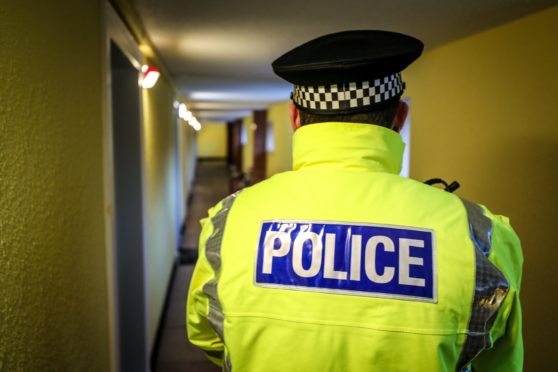Police chiefs have no record of the number of registered sex offenders who have changed their gender.
Critics say the revelation highlights a broken promise from the Scottish Government, which said it would change the law to require this during the passage of the controversial Gender Recognition Reform Bill.
Political rivals are now calling on the SNP to fast track legislation to enshrine the requirement in law, despite the Bill being blocked.
It comes against a backdrop of the Scottish Prison Service unveiling an updated policy on trans inmates which fails to guarantee male-born offenders with a history of violence against women will be barred from the female prison estate.
What do the police say?
Police Scotland responded to a freedom of information request from the Scottish Conservatives saying it has no data on sex offenders who have changed gender and that there is no requirement to report this.
It stated: “The is no requirement under the aforementioned legislation of notification requirements that requires a RSO to notify of a gender change.
“As such this information is not available.”
Tory justice spokesman Russell Findlay said: “This alarming admission from Police Scotland exposes another broken SNP promise.
“During the passing of their gender self-ID law, Shona Robison said that the rules would be changed so the police would be entitled to know when registered sex offenders change their gender identity. This has not happened.
“Officers whose job is to keep people safe must be told when a sex offender changes their identity in any way.
“The existence of this loophole means that predatory criminals, most of whom are men, can exploit gender identity to go to ground, putting women and girls at increased risk.”
The Conservatives tried to ban registered sex offenders from obtaining a Gender Recognition Certificate whilst still on the register.
They said this would prevent criminals from misusing them to gain access to single-sex spaces for women.
But SNP, Green and Lib Dem MSPs voted down the amendment.
Gender reform Bill blocked
The Gender Recognition Reform Bill was passed by MSPs but was blocked from becoming law by the UK Government’s use of Section 35 of the Scotland Act.
The new law would make it easier for people to legally change their gender but critics argue it could put women and girls at risk.
On Friday, the Court of Session ruled the unprecedented use of Section 35 was lawful, rejecting a challenge from the Scottish Government.
First Minister Humza Yousaf said the ruling highlights the flaws of devolution but he said his government will respect and consider the judgment.
Writing on X, formerly Twitter, Yousaf said: “Today’s ruling confirms beyond doubt that devolution is fundamentally flawed.
“The court has confirmed that legislation passed by a majority in Holyrood can be struck down by Westminster.”
He added: “This is a dark day for devolution.”
The legal challenge cost the Scottish Government around £230,000 and ministers now have three weeks to decide whether they want to appeal against the decision at the Supreme Court.
Old rival in new warning
Yousaf’s one-time leadership rival Kate Forbes warned the government must not now prolong the legal battle.
Instead, she urged the first minister to work with MSPs to develop a “reformed” Bill that works for campaigners on both sides of the argument.
She said: “I previously argued that the Scottish Government shouldn’t contest Section 35 unless there was a very high chance of success.
“A loss for Scottish Government would obviously absorb public funds but could embolden future UK Government to interfere in devolution, which no party of independence wishes to see.”
The Skye, Lochaber and Badenoch MSP added: “Most worrying, it has created a period of great uncertainty and fear for trans people and women and girls, deepening already bitter divisions.
“All politicians must heal divisions not exacerbate them. That means listening.”



Conversation